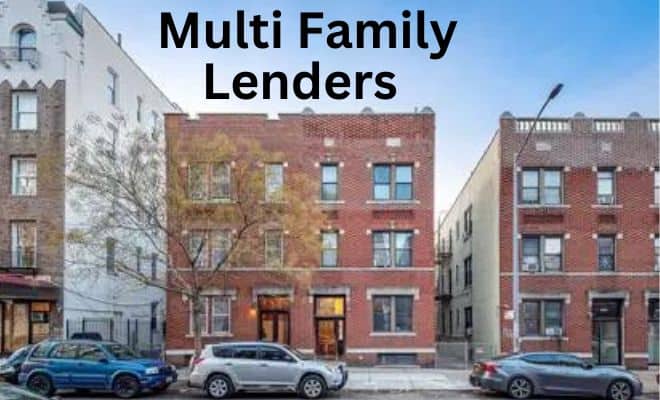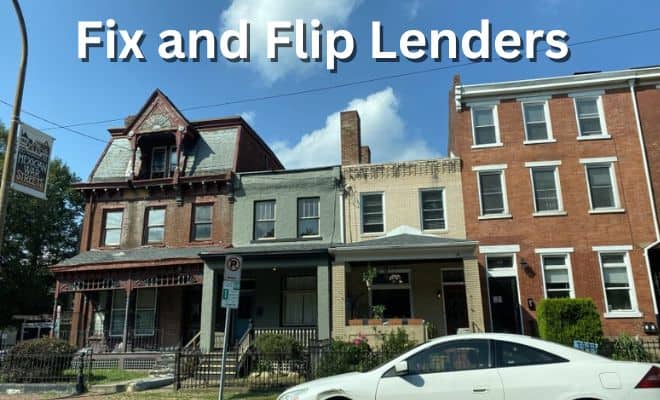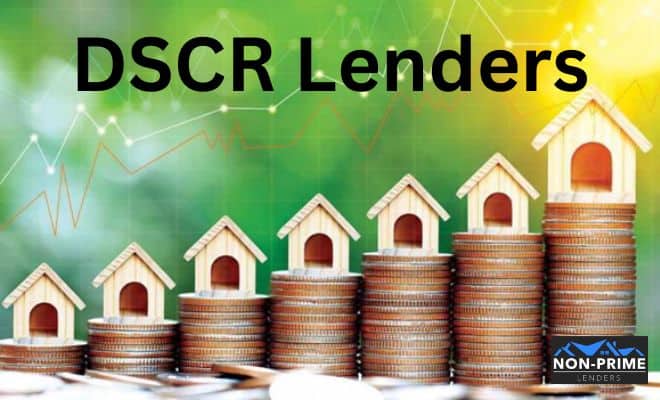Non Recourse Lenders
Non recourse lenders provide financing options for real estate investments in the US. These loans, secured by collateral, do not hold the borrower personally liable in case of default. Understanding the basics, benefits, and differences from recourse loans is essential for investors.
Qualifying for a non-recourse loan involves factors like credit score, income stability, and debt coverage ratio. While non-recourse loans offer advantages, they also have risks and limitations. We will review non-recourse lenders and their role in real estate financing.
What is a Non-Recourse Loan?
A non-recourse loan is a mortgage secured by collateral, such as real estate properties, where the lender cannot pursue the borrower personally in case of default. It offers a level of protection to borrowers, as they are not personally liable for the repayment of the loan if they cannot fulfill their obligations.
Many real estate investors seek out non recourse lenders to help purchase multiple properties while shielding them from the personal responsibility of paying the mortgage.
Understanding the Basics of Non-Recourse Loans
Non-recourse loans are often used in the real estate industry, particularly in commercial real estate projects with extended completion periods. The underlying collateral serves as security for the loan, and the lender’s only remedy in case of default is to seize the collateral asset. The borrower’s other assets remain protected, minimizing personal risk.
Key Features and Benefits of Non-Recourse Loans
Non-recourse loans have several important features and benefits. First, they typically require high credit scores, low loan-to-value ratios, stable income sources, and a debt coverage ratio of at least 1.00 to qualify. However, some lenders are looking for a ratio of at least 1.20. Additionally, non-recourse loans limit the amount of assets the lender can reclaim in case of default, providing borrowers with a level of asset protection.
Furthermore, non-recourse loans can be a valuable financing option for borrowers, as they are not personally responsible for repaying the loan in case of default. This can be particularly advantageous in high-risk ventures or projects with uncertain outcomes, where borrowers want to limit their personal liability.
How Non-Recourse Loans Differ from Recourse Loans
It’s important to understand the differences between non-recourse loans and recourse loans. In a recourse loan, the lender can go after both the collateral and the borrower’s personal assets in case of default. This means borrowers are personally liable for repaying the loan, and their assets may be at risk.
Non-recourse loans, on the other hand, protect borrowers from personal liability. The lender’s only recourse is to seize the collateral asset if the borrower defaults, and they cannot go after the borrower’s other assets. This key difference makes non-recourse loans preferred for borrowers seeking increased protection and risk mitigation.
The Use of Non-Recourse Loans in Real Estate Investments
Non-recourse loans offer valuable financing options for real estate investments, providing unique benefits and considerations for investors. This section explores different financing options, highlights the advantages of non-recourse loans, and discusses important factors to consider when utilizing these loans for real estate ventures.
Financing Options for Real Estate Investments
When it comes to financing real estate investments, investors have various options to explore. Traditional bank loans, private loans, and non-recourse loans are among the commonly considered choices.
Traditional bank loans typically require personal guarantees, making the borrower personally liable for repayment. On the other hand, non-recourse loans provide an alternative where the lender can only hold the collateral as security and cannot pursue the borrower’s personal assets in case of default.
Private loans, though not as common as traditional bank loans, also offer alternatives for real estate financing. Private individuals or organizations typically provide these loans and may have their own set of terms and conditions. Read more about private money lenders.
How Non-Recourse Loans Benefit Real Estate Investors
Non-recourse loans bring several advantages to real estate investors, contributing to their appeal in the market. One significant benefit is the limited personal liability. Investors who opt for non-recourse loans are shielded from personal financial risk in the event of default. Their personal assets are protected, and they are only at risk of losing the collateral provided.
Additionally, non-recourse loans often have more flexibility in terms and conditions compared to traditional loans. This flexibility allows investors to structure repayment schedules and terms that align with their investment strategy and goals. It can provide greater control and adaptability throughout the investment process.
Finally, non-recourse loans can be especially beneficial for self-directed IRAs, allowing individuals to invest in real estate within their retirement accounts without assuming personal liability for the loan. This opens up more opportunities for diversification and potential growth within their IRA portfolios.
Considerations When Using Non-Recourse Loans for Real Estate
While non-recourse loans offer numerous advantages, real estate investors must consider certain factors before deciding to utilize these loans. Some key considerations include:
- The loan-to-value (LTV) ratio: Non-recourse lenders typically require a lower LTV ratio, meaning borrowers may need to contribute a higher down payment or collateral value for loan approval. This is typically at least 20% down.
- Creditworthiness: Despite limited personal liability, borrowers are still subject to rigorous creditworthiness assessments. Non-recourse lenders evaluate credit scores, income stability, and other factors to determine eligibility.
- Interest rates and terms: Non-recourse loans often have higher interest rates compared to mortgages that traditional banks offer. Investors should carefully analyze the terms and rates to ensure they fit within their financial goals.
- Loan repayment structure: Investors need to consider the repayment structure, including the timeline, interest payments, and potential fees or penalties associated with early repayment.
By carefully evaluating these considerations and understanding the terms of non-recourse loans, real estate investors can make decisions to meet their investment objectives.
Non-Recourse Lender Loan Approval Process
When seeking a non-recourse loan, it is important to understand the qualification requirements and the loan approval process. This section provides an overview of what it takes to qualify for a non-recourse loan, the factors that non-recourse lenders consider, and the steps involved in the loan approval process.
Qualifying for a Non-Recourse Loan
Qualifying for a non-recourse loan involves meeting certain criteria set by the lenders. While specific requirements may vary across different lenders, the following general factors are often considered:
- Credit Score: Non-recourse lenders typically require a good credit score to ensure the borrower’s financial reliability.
- Income Stability: Lenders assess the borrower’s income stability to evaluate their ability to repay the loan.
- Debt Coverage Ratio (DCR): The DCR measures the borrower’s cash flow and is an important metric in determining loan eligibility.
- Collateral: The property being financed serves as collateral for the loan, and its value and quality are essential factors in the approval process.
Essential Factors Considered by Non-Recourse Lenders
Non-recourse lenders carefully evaluate various factors before approving a loan. Some important factors they consider include:
- Property Type: Lenders assess the type of property being financed, such as commercial real estate or multi-family housing, to understand the associated risks and potential returns.
- Loan-to-Value Ratio (LTV): Lenders analyze the loan amount in relation to the property value to determine if it falls within a acceptable range.
- Borrower Experience: Lenders often consider the borrower’s level of experience and expertise in managing similar real estate investments.
- Market Conditions: Evaluating the current market conditions helps lenders assess the potential viability and profitability of the investment.
The Loan Approval Process for Non-Recourse Loans
The loan approval process for non-recourse loans typically involves the following steps:
- Application: The borrower submits a loan application, providing all the required documentation and financial information.
- Underwriting: The lender thoroughly reviews the application, performs due diligence, and assesses the borrower’s qualifications along with the property’s value and potential.
- Loan Structuring: If the application meets the lender’s criteria, they propose suitable loan terms, including the loan amount, interest rate, and repayment terms.
- Loan Documentation: The necessary legal documentation is prepared and executed once the borrower accepts a loan offer.
- Loan Closing: The final step involves the disbursement of funds to the borrower, completing the loan transaction.
Borrowers must stay informed about the loan approval process and communicate clearly with non-recourse lenders to ensure a smooth and successful financing experience.
Risks and Limitations of Non-Recourse Loans
When considering non-recourse loans, it is important to understand the potential risks and limitations that borrowers and lenders may encounter.
Understanding Potential Risks for Borrowers and Lenders
Borrowers taking out non-recourse loans should be aware of the following risks:
- The possibility of losing the collateralized property in case of default
- Higher interest rates compared to traditional recourse loans
- Potential limitations on property use and restrictions on managing the investment
- Inability to negotiate more favorable loan terms due to limited options
Lenders also face risks when providing non-recourse loans:
- Reduced recourse options to recover their investment if the borrower defaults
- Potential decline in property value affecting the loan’s collateral
- Risk of default if the borrower mismanages the property or faces financial challenges
- Higher due diligence requirements to assess borrower eligibility and property value
Limitations and Restrictions of Non-Recourse Loans
Non-recourse loans come with certain limitations and restrictions, including:
- Stricter qualification criteria, such as high credit score requirements
- Lower loan-to-value ratios, limiting the amount borrowers can finance
- Imposed maximum loan amounts based on the property’s appraised value
- Requirements for strong income stability and debt coverage ratio
Mitigating Risks Associated with Non-Recourse Loans
While non-recourse loans carry risks, borrowers and lenders can take steps to mitigate them:
- Thoroughly analyze the investment property’s potential to minimize the risk of default
- Utilize conservative financial projections when assessing the property’s income potential
- Consider diversifying investments to spread risk across multiple properties
- Seek legal and financial advice before entering into non-recourse loan agreements
Non Recourse Lenders
We have extensive relationships in the industry with non-recourse lenders. Each one offers different products and has different requirements. Below is a short list of just a few non-recourse lenders who we have worked with in the past. However, we urge you to contact us first so we can help determine which non recourse lender is best suited for your personal scenario and location. Contact us to Speak with a Non Recourse Lender
- North American Savings Bank – Contact
- Terrydale Capital – Contact
- Clopton Capital – Contact
- First Western Federal Savings Bank – Contact
- Kiavi Funding – Contact
Frequently Asked Questions about Non-Recourse Loans
Here, we address some common questions regarding non-recourse loans and provide insights into their various aspects.
How are Non-Recourse Loans Different from Traditional Bank Loans?
Non-recourse loans differ from traditional bank loans primarily in the level of personal liability. With non-recourse loans, borrowers are not personally responsible for the outstanding debt in case of default. In contrast, traditional bank loans are recourse loans, where borrowers can be held personally liable for any remaining debt.
Can Non-Recourse Lenders Seize Other Assets in Case of Default?
No, non-recourse lenders typically cannot seize assets beyond the collateral property in case of default. This is one of the key advantages for borrowers. However, it’s essential to review the loan agreement thoroughly, as certain exceptions may apply, such as ‘bad boy carve-outs’ that can convert a non-recourse loan into a recourse loan based on the borrower’s intentional misconduct.
Are Non-Recourse Loans Available for Self-Directed IRAs?
Non-recourse loans are often available for self-directed Individual Retirement Accounts (IRAs). This offers investors an additional avenue to finance real estate or other alternative investments within their self-directed IRA structure. Borrowers need to comply with specific IRS regulations and the guidelines set by the custodian of the self-directed IRA.
What are the Prohibited Transactions with Non-Recourse Loans?
Prohibited transactions with non-recourse loans typically involve certain self-dealing activities or engaging in transactions that could generate personal gain for the borrower or disqualified parties. These transactions include buying property for personal use, selling property to a disqualified party, or using the property as security for a personal loan.
How Can Non-Recourse Loans be Utilized for Real Estate Investment?
- Financing Property Purchases: Non-recourse loans allow financing property acquisitions without the same level of personal liability as recourse loans.
- Expanding Investment Portfolio: Investors can use non-recourse loans to diversify their investment portfolio by acquiring additional properties or ventures.
- Securing Long-Term Financing: Non-recourse loans are particularly beneficial for real estate investments with a long-term horizon, such as commercial projects.
- Maximizing Cash Flow: By leveraging non-recourse loans, investors can maximize their cash flow potential by utilizing other available funds for different investment opportunities.
These are just a few ways in which non-recourse loans are typically utilized within real estate investment strategies.







